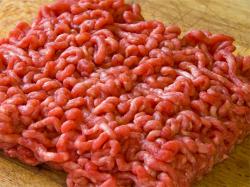Report: Food Safety Performance Of Ground Beef Suppliers To The National School Lunch Program
January 6, 2015 | 2 min to read

The Agricultural Marketing Service (AMS) of the United States Department of Agriculture USDA) bought $150 million worth of raw and cooked ground beef products in 2011 for the National School Lunch Program (NSLP). Schools purchased about one-third of this ground beef as raw product and two-thirds as precooked hamburger patties, Salisbury steaks, cooked ground beef, and other products.
The food safety of meals served in the Nation's schools concerns many Americans, especially those with children in school. Because ground beef is a staple of school menus and has suffered a number of product recalls in recent years, AMS gives the food safety of ground beef particular attention. AMS requires ground beef suppliers to adhere to strict tolerances for Salmonella spp and other potentially harmful pathogens. At the same time, AMS is obligated to select low-cost bidders that agree to meet its standards. Ground beef suppliers achieve food safety by investing in sanitation and cleaning. However, these food safety investments are costly and must be recouped through a higher bid price. AMS ground beef suppliers must, therefore, carefully evaluate their bid price relative to their food safety investments.
An article in USA Today in December 2009 and other later media reports stated that AMS’s food safety standards for ground beef suppliers to NSLP were less stringent than those of major restaurant chains. AMS then strengthened its standards, but experts at the National Academy of Sciences asserted that the revised standards lacked sufficient scientific basis and had other shortcomings. Depite these concerns about ground beef safety and the system's incentive to bidders to underinvest in food safety, no economic analyses of the effectiveness of AMS standards have been published.
To read the rest of the story, please go to: USDA Economic Research Service
